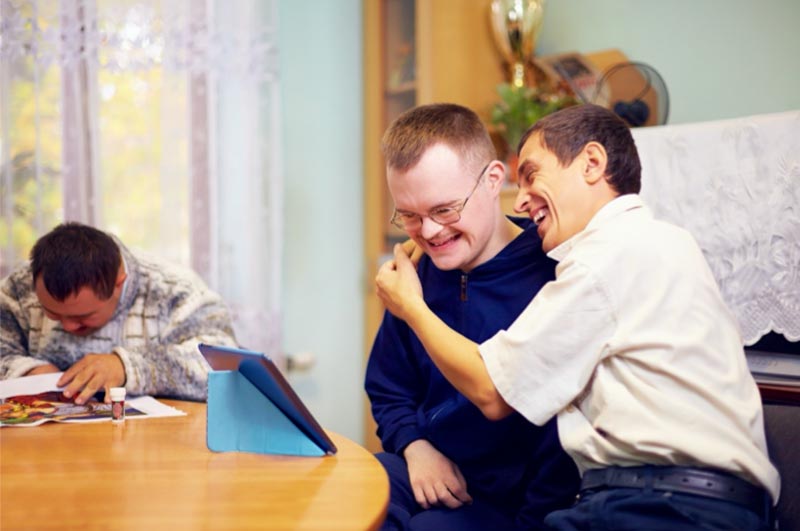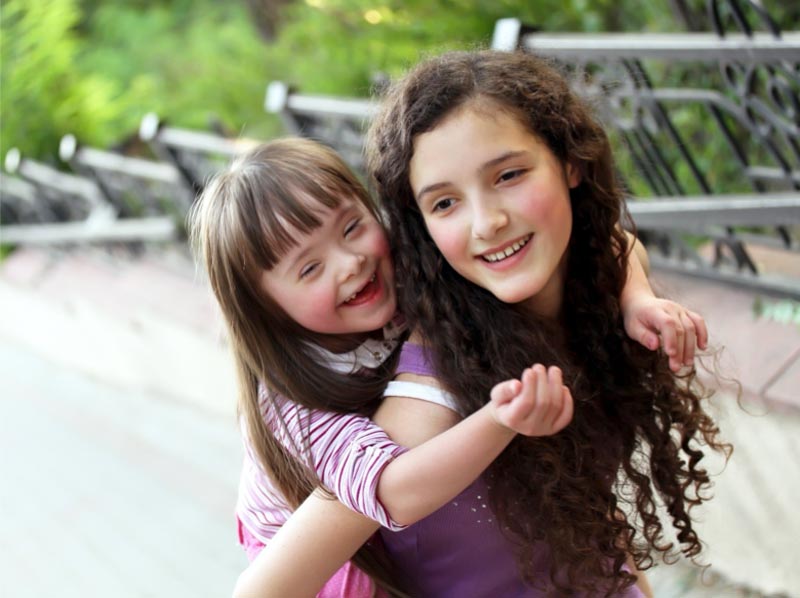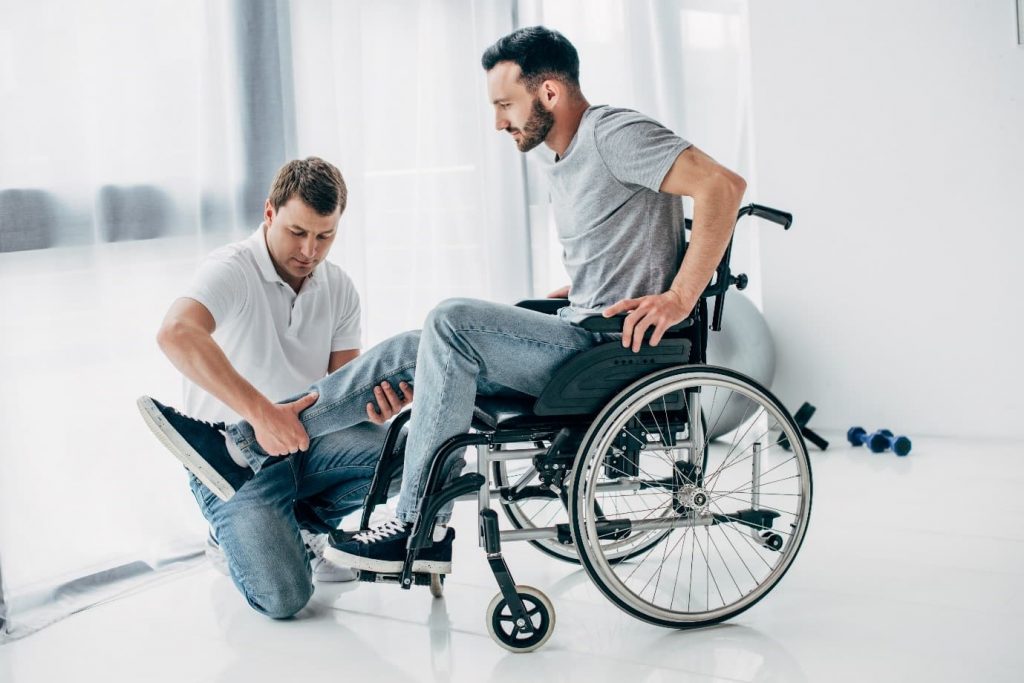Therapeutic Supports and NDIS Funding
hidden
What are NDIS therapeutic supports?
Many participants receive funding for NDIS therapeutic supports under their NDIS plans. The term ‘therapeutic supports’ covers a wide range of therapies designed to assist NDIS participants to achieve their goals related to function and independence.
For example, you might use NDIS funded therapeutic supports for therapies that improve your ability to care for yourself, move around safely, and participate in your family, school, sport, workplace and community.
NDIS therapeutic support can be delivered by a wide range of qualified providers.
How is therapy funded under the NDIS?
NDIS therapeutic supports can be funded under different categories of your Capacity Building budget.
Improved Daily Living
(category 15)
NDIS funded therapeutic supports most often fall under this budget category. As the name suggests, this budget provides funding for you to work with therapists to improve your everyday living skills. Therapy under this NDIS budget category is about supporting you to become more independent, participate safely and confidently in your community, and reach your goals. Therapies funded under this category may be delivered individually or in group settings.
Improved Health and Wellbeing
(category 12)
Therapy support funded under this budget category is about helping you to improve or maintain your physical mobility, health and wellbeing. For example, it could include funding for support from a dietitian to advise you about dietary changes to help you manage the effects of your disability. Or an exercise physiologist might create an exercise plan to help improve your fitness capacity so you can access your community or participate in sport.
Improved Relationships
(category 11)
Therapies funded under this budget category are designed to support your ability to interact and socialise with others, such as behavioural interventions and social skills development. These supports are delivered by professionals such as behaviour therapists and psychologists.
With regards to pricing for therapeutic supports, the National Disability Insurance Agency (NDIA) sets price caps that help make sure NDIS participants get good value from their support packages. These prices are reviewed annually, with costs for different supports published in the ‘NDIS Pricing Arrangements and Price Limits’ document (formerly called the ‘NDIS Price Guide’). The 2021-22 NDIS pricing document is available here.

NDIS therapeutic supports must be related to your disability and NDIS goals
Who can receive NDIS therapeutic supports?
NDIS participants with funding under these budget categories are eligible to receive therapeutic supports, provided they meet the reasonable and necessary criteria. Therapies must be directly related to your disability and provide support for achieving your NDIS goals.
Who provides NDIS therapeutic supports?
NDIS funded therapeutic supports are typically delivered by qualified allied health professionals, such as exercise physiologists, occupational therapists, physiotherapists, speech pathologists and dietitians. They are sometimes also provided by registered nurses. The key factor is that the person providing the service must be suitably qualified and registered to practice in their field.
Examples of NDIS therapeutic supports
The NDIS will fund different types of therapeutic supports depending on your individual needs and goals. Therapy may be provided in a range of settings, such as your home, school, workplace, gym, pool, or other community setting. Some services may also be provided online via telehealth.
Here’s a list of examples of NDIS funded therapeutic supports you might receive through Active Ability.
Exercise physiology
Under the NDIS, therapeutic supports provided by exercise physiologists can be funded through the Improved Health and Wellbeing and the Improved Daily Living categories. Therapy with our exercise physiologists might help you to achieve your goals by:
- Increasing your mobility and endurance so you can access the community
- Improving your dexterity, coordination and flexibility so you can participate in sport and leisure activities
- Building your strength, balance and fitness so you can keep up with peers
- Reducing spasticity and contractures and improving your posture so you can move around more easily at home and in the community
- Improving sleep quality and managing fatigue, so you have the energy and enthusiasm to participate in daily activities
- Decreasing anxiety and depression symptoms to support a greater quality of life
- Creating a physical activity plan to manage the effects of your disability and/or medications
- Improving your metabolic wellbeing if this has been affected by your disability, including better diabetes and blood pressure management
- Educating you about ways to enhance your health and wellbeing.
hidden
hidden
Physiotherapy
NDIS physiotherapy supports are funded under the Improved Daily Living category of your NDIS plan. Our physiotherapists provide tailored treatments designed to restore or maintain your mobility, function, and independence. Examples include:
- Functional task training to support your ability to participate in home and community activities
- Mobility and balance assessments and training to support your safety at home and in your community
- Therapies to help you manage pain, such as heat and cold therapy, dry needling and electrotherapy
- Exercise and education to improve pelvic floor function and continence
- Motor development training to support children with a disability to keep up with their peers
- Exercise to improve your strength, coordination and posture, so you can participate in sport and leisure activities
- Training your support people to assist you with mobility and transfers, so you can move around safely at home and out in the community
- Education and advice for managing the impacts of your disability
- Assessments for assistive technology supports.
Dietitian consultations
NDIS dietetic services can be funded under the Improved Health and Wellbeing and Improved Daily Living budget categories. At Active Ability, our NDIS registered dietitians support people living with disability to make dietary choices for better health. Examples include:
- Providing dietary advice for health and wellbeing issues related to your disability
- Developing diet plans to support achievement or maintenance of a healthy weight
- Support and advice for healthy menu planning, meal preparation and mindful eating habits
- Training in grocery shopping and reading food labels, so you can make dietary choices that support your health
- Managing food allergies and intolerances, such as gluten intolerance in coeliac disease
- Designing and implementing texture-modified diets to reduce choking risk
- Advice and support to help with picky eating
- Advice on eating to support better mood.
hidden
This list is not exhaustive. Remember, your therapy will be tailored to your individual needs and goals. Contact us if you’d like to find out how our experienced and dedicated health professionals can help you to achieve your goals.

NDIS funded therapies can support your ability to participate in home, family and community activities
How do NDIS therapeutic supports work?
For NDIS participants, commencing NDIS therapeutic supports usually starts with an initial consultation. During this visit, your therapist will talk to you about your health history, support needs, abilities and goals. Your therapist might ask you to do some activities or answer questions that will help them understand your current level of function.
Together with you, and your support people if applicable, they will develop a plan for helping you to achieve your goals. This might include things like regular appointments, activities or exercises to do at home, hands-on therapies, advice about lifestyle changes, and training for your support people.
Your plan will be reviewed regularly and updated as needed, in line with changes to your function and goals.
More about NDIS therapeutic supports with Active Ability
At Active Ability, our mission is to support people living with disability to achieve optimal independence, health and quality of life. We specifically focus on working with people who have a neurological condition, intellectual disability and/or mental health condition.
Our team includes NDIS registered physiotherapists, dietitians and exercise physiologists. We take a multidisciplinary, evidence-based therapy approach, ensuring you receive the highest standards of care.
As mobile NDIS service providers, our caring and knowledge therapists come to you. We provide our therapeutic supports in the most convenient and significant environment for you, such as your home, school, workplace or gym.
And because we don’t have waiting lists, you can get started with therapy right away.
You can learn more about our services here. If your current plan doesn’t include funding for NDIS therapeutic supports, talk to our friendly team about how we can help you gain access to them.
Contact us on (02) 8678 7874, email hello@activeability.com.au or use our contact form.
